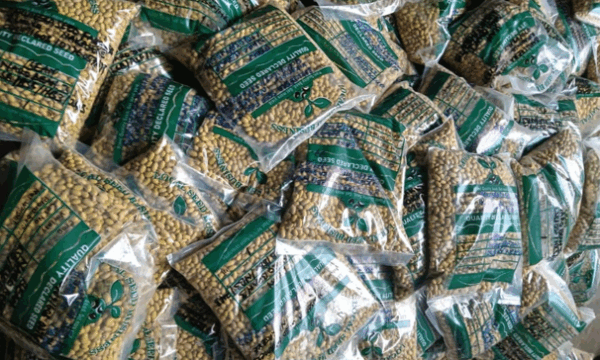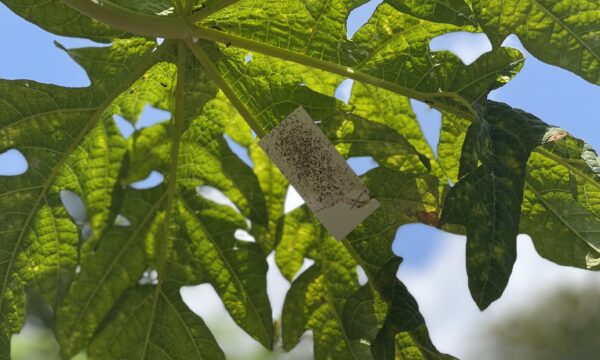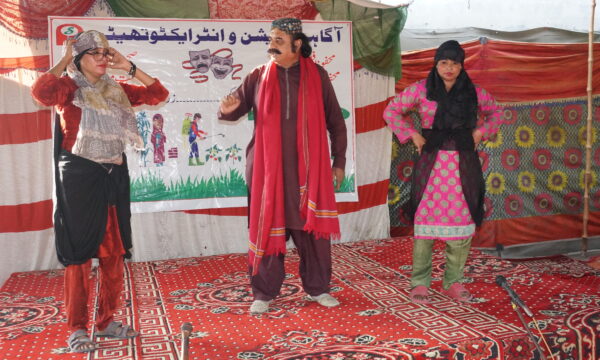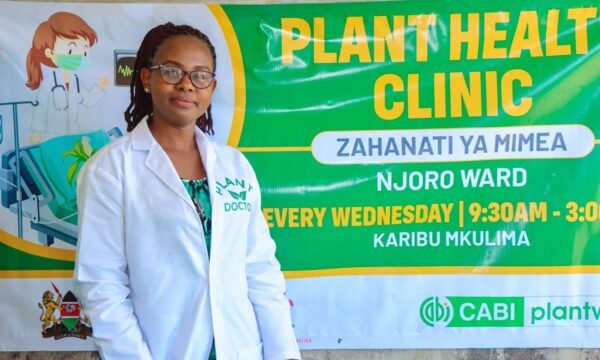As we move into the New Year and all that 2014 has to offer it seems like a good time to review some of the achievements of 2013. Here are a few of the Plantwise highlights of 2013!
![]() NEF innovation in policy award
NEF innovation in policy award
At the 10th annual Innovisions Conference in London, CABI took home the National Engineering Foundation (NEF) Innovation Award for Plantwise. The CEO of the NEF, Professor Sa’ad Medhat stated: ‘Nominees were judged for their clarity of intended purpose, uniqueness of approach, potential impact, and whether they stimulated and galvanised others.’ As the best example for government policy supporting innovation, Plantwise was chosen for this award, with its novel approach to improving food security.
![]() Plantwise expands
Plantwise expands
In 2013 the Plantwise initiative was adopted by several countries to help reduce crop losses from pests and diseases and subsequently increase food security. The new Plantwise countries include: Brazil, Ethiopia, Malawi, Burkina Faso, Zambia, Mozambique and Thailand.
![]() Plantwise Collaborates with the IPPC
Plantwise Collaborates with the IPPC
CABI and the International Plant Protection Convention (IPPC) have initiated secondments in order to synergize their different but complementary missions and further shared goals. The collaborative arrangement will involve projects such as building links between online resources and harmonizing terminology used by both Plantwise and the IPPC. In the future CABI Plantwise and the IPPC will work together to actively communicate pest occurrence to national regulators and bridge the gap between agricultural and environmental workers.
![]() Successful mobile pilot in Kenya
Successful mobile pilot in Kenya

Plant doctors using mobile technology to give diagnostic advice to farmers and improve data collection in Kenya. Credit: Holly Wright © CABI
In November Plantwise carried out a mobile data collection pilot on a plant clinic in Kenya. This was the first plant clinic to collect data electronically. Plant doctors were successfully trained to use tablets to diagnose and record plant pests and diseases. Recommendations were sent to farmers in the form of SMS messages, aiming to increase attendance at the plant clinic and extend the reach of Plantwise extension messaging. Mobile technology will provide a platform for plant clinic data collection improving the quality and speed of collection/processing, as well as improving the advice given in clinics. Farmers can benefit from this technology by accessing important information such as weather forecasts, pest and disease reports and market prices. In 2014 this project, through a series of pilots will be implemented in plant clinics in Kenya and India.
![]() Makerere University integrates Plantwise into the curriculum
Makerere University integrates Plantwise into the curriculum
The University of Makerere’s College of Agricultural and Environmental Sciences (CAES) in Uganda, has launched the opportunity for BSc students to carry out Plantwise Module 1 and 2: how to become a plant doctor and how to run a successful plant clinic. Dr Robert Karyeija said “Uganda has 112 districts applying for plant clinics. What we are missing are young graduates interested in the fight against pests and diseases.” Integration of Plantwise into the University curriculum will find enthusiastic young graduates to give diagnostic advice to farmers.
![]() Successful growth of the Plantwise Blog
Successful growth of the Plantwise Blog
Since the Plantwise Blog was launched in 2010 it has gone from strength to strength. Now with 371 followers, the blog has published 433 posts and in 2013 alone received 42,743 views. To celebrate the success of the Plantwise Blog, here is a list of the most viewed blog posts in 2013:
- From discovery to eradication: the coconut rhinoceros beetle on Guam
- Earthworm-farmer friendship, redefined
- New Research on Maize Lethal Necrosis Disease in Kenya
- Which is the most important plant-pathogenic fungus?
- About Plantwise
- Video: See Xanthomonas bacteria infecting a tomato plant
- What CABI Is Doing To Tackle Major Coffee Rust Outbreaks in Central America
- The life and travels of Tuta absoluta, the tomato leaf miner
- From Beyonce to Lady Gaga- The Importance of Insect Taxonomy
- The Life Cycle of Wheat Stem Rust
![]() Plantwise Internship launched in China
Plantwise Internship launched in China
The Plantwise internship provides the opportunity for young motivated researchers to carry out studies on creating and communicating new knowledge within Plantwise countries. One such project involves investigating where Chinese farmers get their agronomic information from and what influences their decisions to act upon the advice. Visit the new internship website for more information.
You can keep up to date with all Plantwise news in 2014 by visiting the website.
1 Comment
Leave a Reply
Related News & Blogs
How does crop rotation help keep pest populations in control?
Crop rotation is a simple, effective way to manage pests, improve soil health, and boost yields. Suitable for all growers, crop rotation supports sustainable agriculture and reduces the need for chemical inputs. By targeting pest lifecycles and reducin…
6 June 2025







All the post of 2013 is very informative.. You are sharing Great Information.. Keep it up…Well Done…